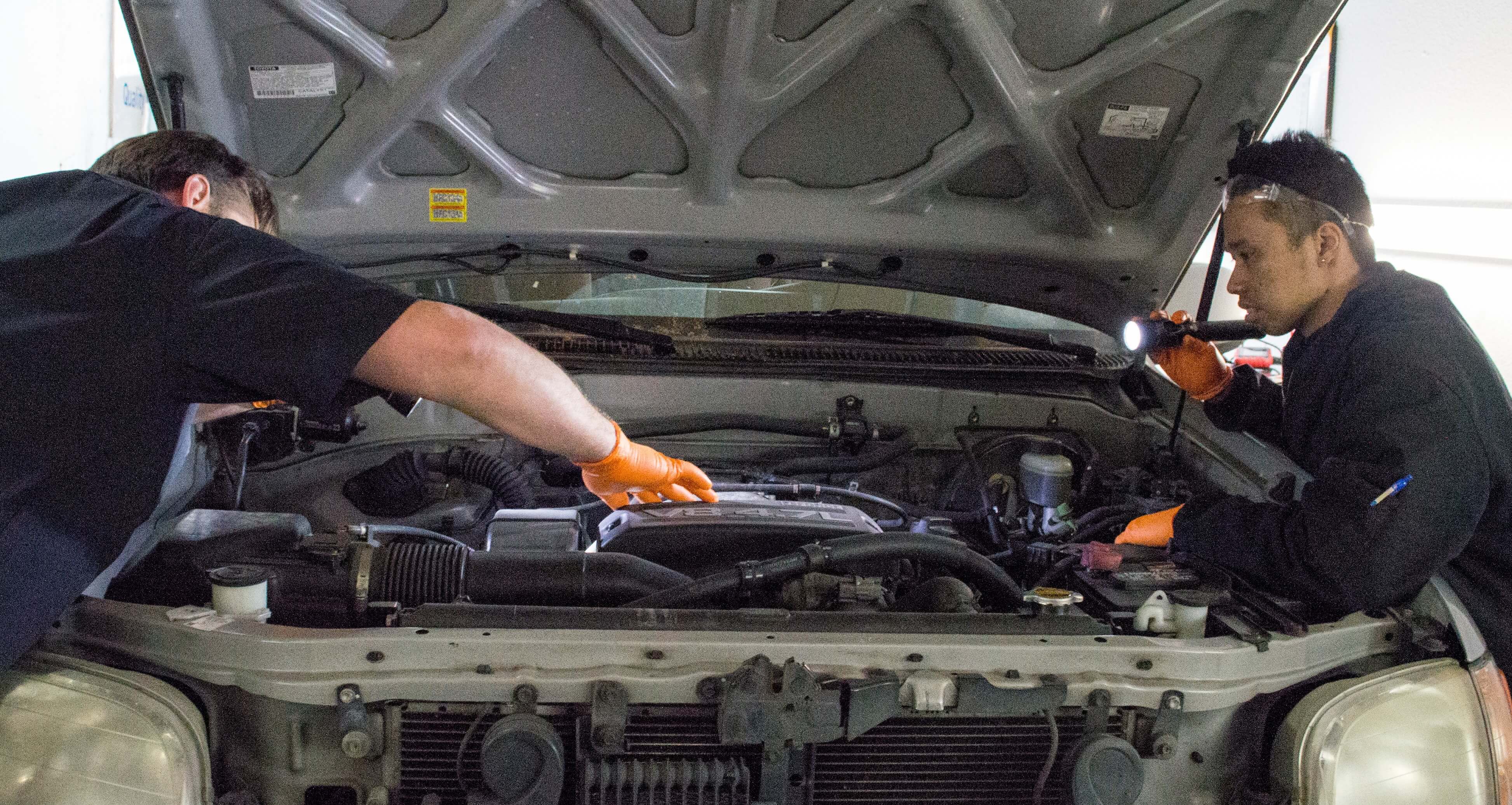Randy Bigness worked as an auto mechanic for years without much concern for his health. He was frequently fatigued, but he figured most mechanics got tired from working hard. Getting sick often also seemed like a common consequence of the profession he was in. It wasn’t until he started to develop more severe infections and his body started refusing antibiotics for treatment that he thought something else might be wrong.
When Randy finally saw a specialist, he learned that he had a rare form of leukemia. This was a direct result of his exposure to chemicals in solvents and other auto shop chemicals. To save what was left of his health, Randy gave up his career in the automotive industry. In order to try and save other mechanics from the same fate, he became a musician to spread awareness about the dangers of automotive chemicals.
What auto shop chemicals pose a risk?
There are many chemicals present in the automotive industry that have the risk of serious side effects if workers are not properly protected. Randy’s leukemia was caused by a chemical called benzene, frequently found in many petroleum-based products. According to the Occupational Safety and Health Administration (OSHA), “Long-term exposure [to benzene] may affect bone marrow and blood production. Short-term exposure to high levels of benzene can cause drowsiness, dizziness, unconsciousness, and death.” Those are the effects of one hazardous chemical. Auto technicians are working with a wide variety of dangerous chemicals in petroleum-based products, brake cleaner, auto paints, fuels, oils, and solvents.

With repeated exposure to these chemicals, the damage can be permanent. For one Canadian mechanic who was frequently exposed to a mixture of solvents, the effects went beyond his physical health. Patrick developed neuro-affective disorder due to chemical exposure that resulted in drastic personality shifts. He became hostile and hot-headed, especially towards his family, while his ability to concentrate dwindled. The damage his brain suffered could have been prevented, but instead it is permanent. Patrick worked with chemicals in a non-ventilated work area and he didn’t wear personal protective equipment such as disposable gloves. If he and his employer had been aware of the risks, they could have taken steps to protect Patrick’s health.
Shop owners and automotive supply distributors need to be aware of the safety concerns associated with automotive chemicals as they have a legal responsibility to protect workers. For some chemicals, such as isocyanates (found in auto paints) mechanics are aware of the respiratory risks. However, they may not be aware of the best ways to avoid skin exposure and other kinds of contamination. Side effects of exposure to isocyanates include dermatitis, chemical bronchitis, hives, and swelling. The Safety & Health Assessment & Research for Prevention (SHARP) surveyed auto paint shops around the country and discovered that while 85% of their employees used gloves while painting, half preferred latex gloves for the comfortable fit and feel. What they are clearly not aware of is that latex gloves do not provide an adequate barrier against isocyanates: the chemical simply seeps right through the glove. Because contamination through the glove is not visible, workers may be unaware that their disposable gloves are not protecting them.

Equally concerning is that some chemicals take a long time to dissipate. Isocyanates, in particular, are not water soluble and so they are not easily removed from skin or clothing. This means that if workers hands or clothing are covered with chemicals, they could spread them to other parts of the auto shop. These chemicals also don’t go away when employees leave work. Their shoes and clothes may contaminate their homes and affect their families.
How Can Auto Mechanics Be Protected?
In order to protect workers and their families from these health concerns, auto shop owners need to purchase the proper personal protection equipment for their employees. This starts with auto distributors being aware of these workplace hazards and what kinds of equipment work best to protect against auto chemical exposure. For example, latex disposable gloves are a poor choice for the auto industry because latex is an organic material and therefore can be broken down by solvents and other auto shop chemicals. This is why auto paint chemicals (isocyanates) can still contaminate workers even if they are wearing disposable gloves.
The best disposable glove material for the automotive industry is nitrile. Nitrile is a petroleum-based product and so it holds up best against the petroleum-based chemicals in auto shops (such as solvents.) Nitrile gloves can still give mechanics the comfort they are looking for in a good pair of disposable gloves. The material actually heats up and conforms to the hand the longer workers wear the gloves. A raised diamond texture glove is more breathable than a non-textured glove, which can give workers a bit of added comfort. The texture also gives mechanics extra grip when working with wet tools or implements.
Beyond disposable gloves, auto shop owners need to provide other personal protective equipment such as respirators. Proper shop ventilation is also vital to keeping workers safe. As long as steps are being taken to protect mechanics, the risks of exposure to auto shop chemicals can be mitigated. The first step is education for shop owners as well as the distributors who serve them.






